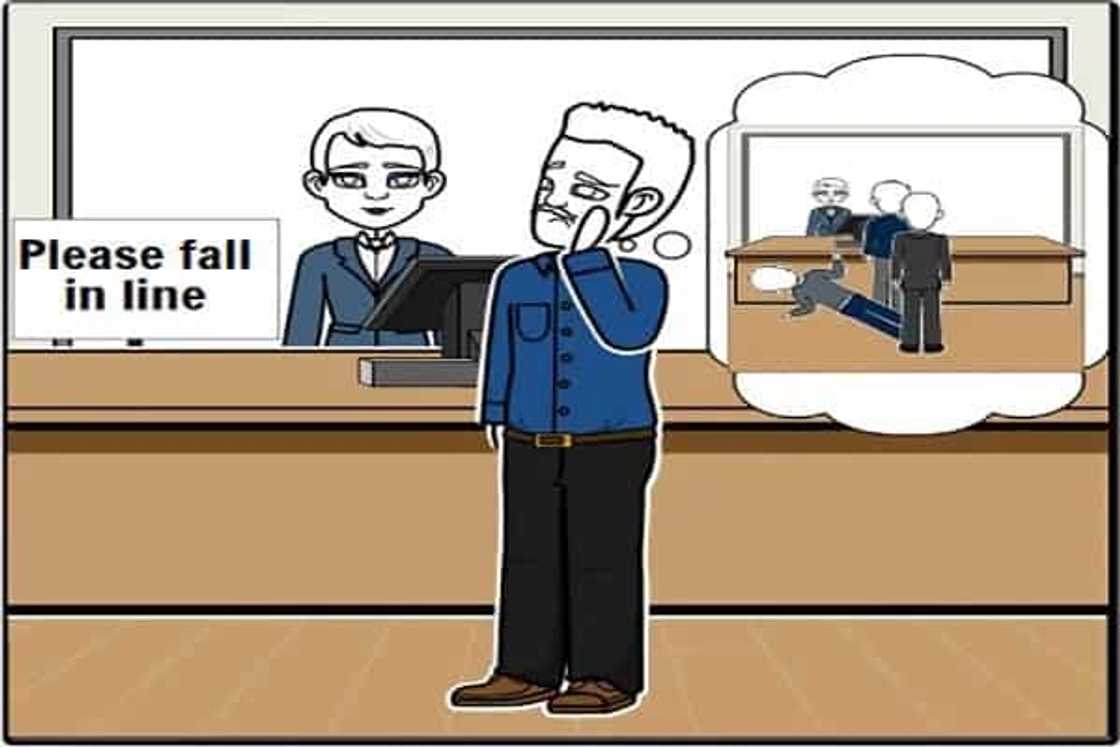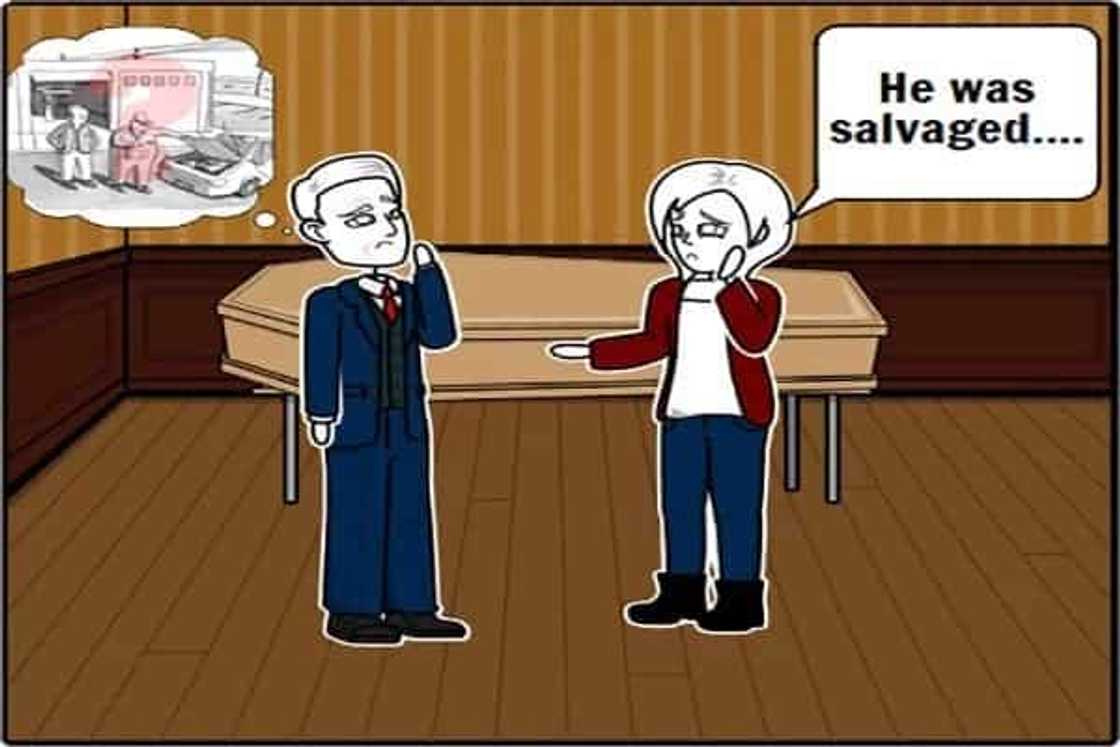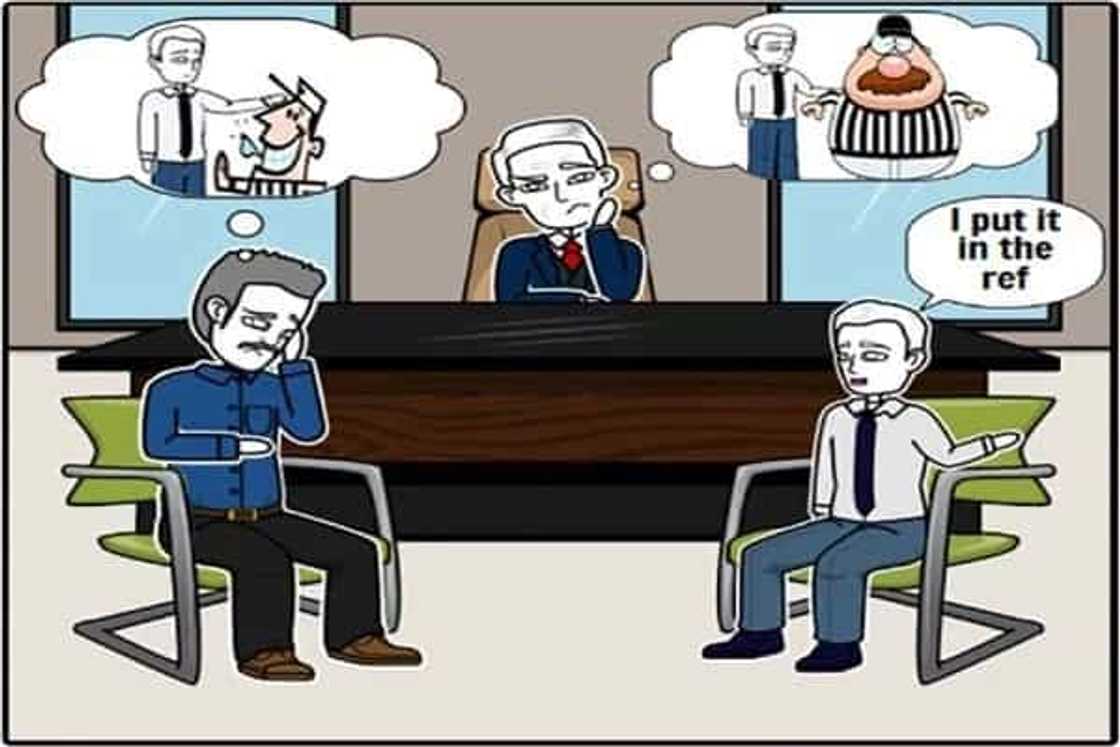Have fun with these 10 hilarious Filipinoisms
Filipinos are fond of "Filipinoisms," or English terms which we either coined or gave different meanings other than what they mean in the English language as used by Americans or the British. Sometimes we think they're correct, only to find out that when we use those words when conversing with Americans or the British, they’ll most likely say “Whaaattt?!!!”
You would be lucky if the foreigner you’re talking to has the patience to understand your language, because if not, then you would be better off looking for somebody else to talk to.
Below are the top 10 “Filipinoisms” that drive foreigners really nuts.
1. Fall In Line

You can always see this sign at fast food chains, or establishments where they want people to line up. While Filipinos may easily understand this, Americans may not because for them it would mean literally “falling” in line with the sounds “kaboom” and “ka blag” when you hit the floor.
The right term for this is “Stand in line” or “Form a line.” So the next time you see this sign posted, better move away as you might get hit when people start falling!
2. Cellphone
“Where’s my cellphone?”
“Can I borrow your cellphone?”
Yes, you may not squirm when you hear the word “cellphone” but Americans may raise their eyebrows when they do. They don’t call “mobile” or “mobile phones” as “cellphones.” You just simply say, “Where’s my mobile phone?”
Come to think of it, who started the term “cellphone?” He must be awarded for having come up with a term that is used by almost 100 million Filipinos.
3. Dine In/Take Out

“Dine-in Ma’am?”
“Dine-in or take-out?”
Ahhh, go to the nearest restaurant or fast food chain and you will hear these common questions being asked by the girl or guy behind the counter. Most Filipinos would easily respond with all conviction, “Dine-in” or “Take-out.”
When an American would respond to this question, he would say, “For here,” which means the food would be eaten right at the restaurant, and “To go,” which means he would be bringing the food with him.
Restaurants in the Philippines would need to have a conference just to ensure that restaurant staff will be using these terms properly especially when it's a foreigner who orders the food.
4. Salvaged

“Breaking News: Man salvaged at grassy area!”
To the mind of the American reader, it would mean that the man was “saved” from a grassy area, but for Filipinos, it means the man was killed in that area. “Salvage” means to save something from being destroyed. You salvage car parts. You salvage an old equipment, but you don't salvage a person.
Why can’t we just use the term killed, murdered, or assassinated. Who started associating “salvage” with being murdered anyway?
5. Main Branch

For Filipinos “main branch” means the primary office of a certain company. For Americans, they refer to it as the “head office” or “corporate headquarters.” So saying it's a "main branch" would have them thinking of a branch of a tree.
Come to think of it, how can a “branch” be “main” considering that a branch refers to an extension of the main office.
Putting it succinctly in Filipino lingo, “Branch na nga, main pa…”
6. Stuck-Up
The “up” word is an overly used term that Filipinos love to append in almost every verb. While there are many, let’s tackle the word, “stuck.”
Take for instance this line from an engineer who got something “stuck-up” in the machine.
“Na stuck-up yung makina. (The machine got 'stuck-up').”
It may sound so normal but Americans would wonder and think, "Did the machine become arrogant? Duh?" For them, “stuck-up” refers to being arrogant. So the next time you use “stuck-up” better make sure it’s in the proper context.
7. Ref

Our love for shortcuts is also apparent in our daily language. Take this for example.
“Ilagay mo sa ref (Put it in the ref).”
Filipinos who hear this can easily understand that you mean the “refrigerator.” However, Americans might start wondering what you will be putting in the “ref,” which they readily relate to a “referee,” or that person calling the shots in a game.
Indeed, what will you be putting in the “ref?”
8. Brownout
Is Meralco at fault for this one? This is an original because Americans don’t use the term “brownout.” It is and will always be “power outage.”
You can just imagine the bewilderment on the face of your next-door neighbor who came to visit the Philippines the moment you shout, “Ugh, it’s brownout!”
9. Hand-carry
Filipino traveler 1: “Hand-carry?”
Filipino traveler 2: “Yes, it’s just overnight.”
American companion: “???”
The term “hand-carry” is being used by Filipinos to refer to the small luggage that you can just bring with you on the plane. For Americans however, this luggage is the “carry-on luggage,” not the “hand-carry.” Better remember this when you plan to go to the US.
10. Senatoriable
When did senatorial candidates become “senatoriables?” It’s most likely, only in the Philippines. – SD, Kami Media
Source: KAMI.com.gh

